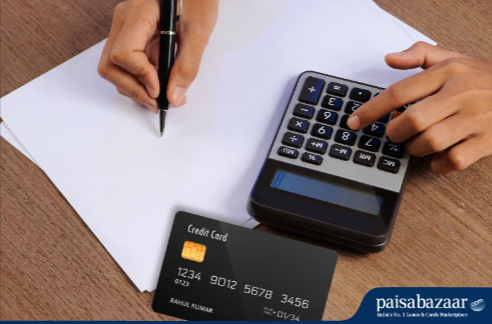Synonymous with financial freedom and flexibility, credit cards give you access to instant credit while allowing you to pay back later. This empowering feature makes credit card an extremely useful tool on a day-to-day basis.
However, if not managed carefully, a credit card could well turn risky, trapping you in a vortex of debt. In order to avoid such a situation, you need to understand how credit card bill payment works and how you can steer clear of any kind of financial liability.
Understanding your Credit Card Bill Payment
When you receive your credit card bill, you are required to repay the pending credit card dues – or credit amount – of the previous month. Subsequently, you may choose to make one of the following payments. These are:
- Minimum Amount Due: The minimum payment that is required to be made every month to keep your account in good standing
- Current Outstanding Balance: This is the entire amount you owe the bank, based on your previous month’s expenses
Experts recommend paying the current outstanding balance in full every month. But if this is not possible and the minimum amount is all you can pay, go ahead by all means. However, you must make sure not to let this happen again and again.
What Happens When you Pay Only the Minimum Amount?
While paying the minimum amount of credit card dues will make sure you don’t incur any late payment fees, carrying a balance from month to month is far from ideal. Here’s what happens when you make only the minimum payment on your credit card:
1) You will Rack up Interest Charges: Credit cards are a form of unsecured loan and typically have a very high rate of interest. Even if you pay the minimum amount by the due date, the bank will charge interest on the outstanding balance, causing your interest charges to swell along with your balance and get rolled over to the next month’s billing cycle. Consequently, charging any more items to your credit card may cause you to fall in a debt trap.
2) No More Interest-Free Period for You: When you use a credit card to make payments, every bank offers a period, typically ranging from 30-50 days, when no interest is charged. However, if you don’t clear the entire outstanding balance before the due date, you will lose the privilege of enjoying the interest-free period. As a result, you will be paying interest on every new purchase you make using your credit card till all credit card dues are paid.
3) Your Credit Score will Dip: Paying only the minimum amount due on your credit card over a period of time will invariably cause your credit utilization ratio — the percentage of credit you are using – to rise. A high credit utilization ratio can adversely impact your credit score, making it hard for you to qualify for loans and credit cards on favorable terms in future.
To conclude, it is always better to pay your credit card dues in full and on time every month. If you are consistently having trouble making your full credit card bill payment, it could be a sign of a larger problem.
You could try and change your spending habits to rectify the problem. You could also consider changing your credit card bill’s due date to a time of the month that is convenient for you. Last but not least, you could apply for credit card with a lengthier interest-free or grace period, allowing you to comfortably pay off your dues on time. IndusInd Bank for instance allows Interest-free Period Up to 50 days, making it a great option if you need a longer interest free cycle.











